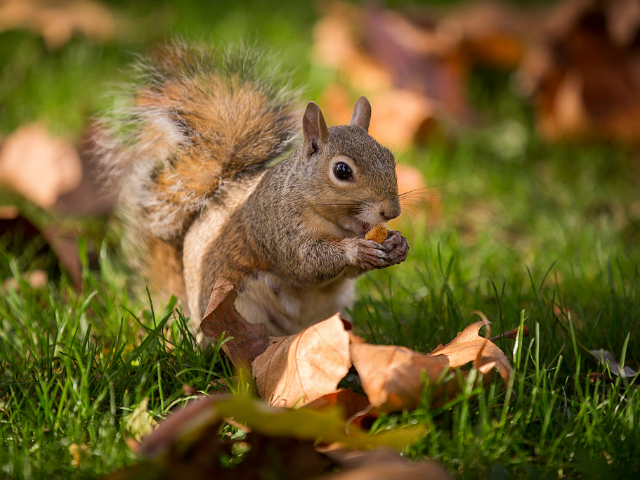Discussion of the threats posed by invasive non-native species such as the grey squirrel is “terrifyingly similar” to concerns over mass migration, according to an environmentalist.
A consultant for New Scientist magazine, Fred Pearce argues that foreign flora and fauna are being “demonised” unfairly while the problematic species which are native to Britain are given a free pass.
Speaking to the Daily Mail ahead of a planned talk at Edinburgh Science Festival on the topic, Pearce decried the language used to describe “invasive species” as “very xenophobic”, stating it “suggests that anything foreign is bad”.
“It is terrifyingly similar to the language which can be used about immigrants invading the country,” added the environmentalist, who claims scientists are more likely to present species as dangerous if they are foreign in his book The New Wild: Why Invasive Species Will Be Nature’s Salvation.
According to Pearce, the dangers of Japanese knotweed — a plant so destructive, fast-growing, and difficult to kill that allowing it to spread beyond one’s own property is a criminal offence — have been overhyped, wrongly drawing attention away from native menaces such as nettles.
Fred Pearce continuing to attack "bad ecology" to promote his view (& his book) that concern over species invasions is based on xenophobia: "True environmentalists…should be applauding the aliens". This is an example of science denialism. https://t.co/690L5H4FRN
— Anthony Ricciardi (@EcoInvasions) April 1, 2018
Set to bemoan the “demonisation” of foreign creatures such as the American beaver when he speaks in Edinburgh this week, the writer told the Mail that the question of whether squirrels in Britain are red or grey makes no difference to the country’s ecosystem.
In addition to the extinction threat they pose to native red squirrels, of which they have wiped out huge numbers through the spread of disease, grey squirrels damage and kill forest trees while their predation of eggs and chicks has contributed to the dangerous decline of woodland birds, according to conservationists.
Honorary Visiting Research Fellow at Bangor University and an advisor to the European Squirrel Initiative, Craig Shuttleworth, has slammed claims that the species has been scapegoated.
“The facts actually do stack up against the grey squirrel,” he writes in a piece published at academic site the Conversation, explaining that the environmentalist “charge sheet against [the species] is based on hundreds of peer-reviewed research papers”.
“The reality is that, while the grey squirrel is an important part of North American forest ecosystems, since being brought to Europe by the Victorians in 1876, the animal has had severe ecological and economic impacts on British woodlands,” said Shuttleworth.
The problem with these criticisms is that they are so inward-looking, i.e. UK-focused in applying the 'xenophobia' criticism. Many nations and their scientists have concerns about invasive species' impacts; does Pearce think all of them are xenophobic?
— Wayne Dawson (@WayneDawsonEco) April 9, 2018
Pearce is not the first person to link xenophobia to discussions on horticulture. In 2014, academic Ben Pitcher claimed that people who enjoy talking about gardening are closet racists who use the hobby as a covert way to promote white identity.
Claiming terms like “invasive” and “non-native” are used by plant enthusiasts to express their opposition to migrants, the senior lecturer in sociology at Westminster University alleged the BBC Radio 4 panel show Gardeners’ Question Time is “saturated with racial meanings”.
Appearing on another Radio 4 programme, Thinking Allowed, Pitcher received support for his assertion from crossbench peer and former cultural studies professor Lola Young, who likened gardeners’ concerns about rhododendrons to anti-Pakistani sentiment.
“I remember back in the late 80s-early 90s when rhododendrons were seen as this huge problem, and people were talking about going out rhododendron-bashing.
“That was at a time when P***-bashing was something that was all too prevalent on our streets,” she said.

COMMENTS
Please let us know if you're having issues with commenting.